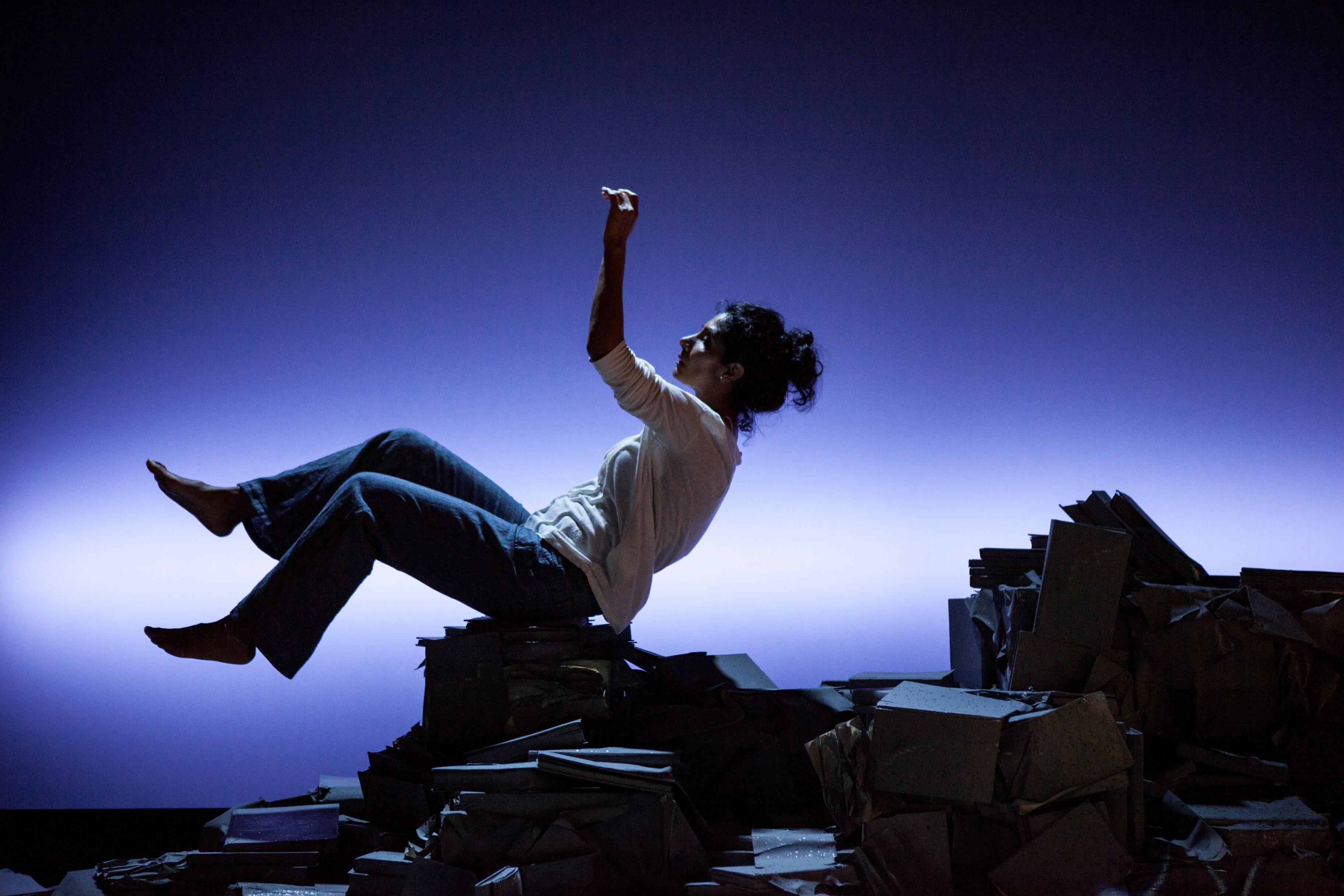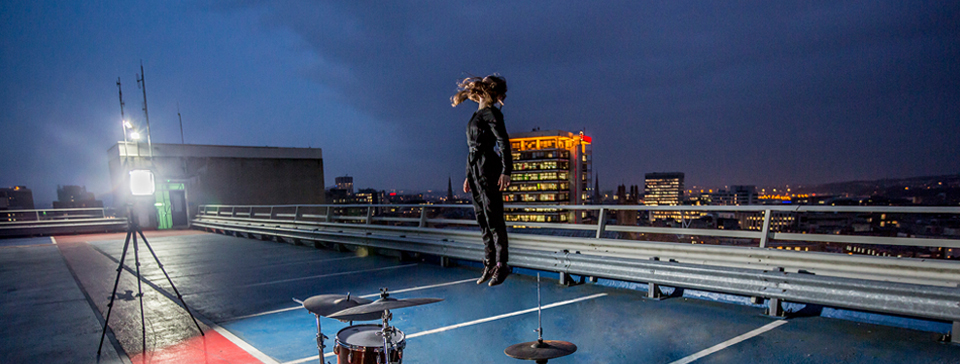The Edge at Tobacco Factory Theatres

I am in love with the sea. I’ve lived by it most of my life. When I moved to the center of this little island of ours for 3 years, I used to feel a pull towards it and disquiet at being so far from it. One of the times I most feel alive is when I am in the sea, surrounded by it and immersed in it. I never see it as the enemy, even when I sometimes swim out too far from the shore and feel a vague panic that I might struggle to get back to dry land. I certainly respect it. In ‘The Edge’, a show by award winning theatre company Transport which is currently playing at Tobacco Factory Theatres, we are invited to consider a world where the power of the sea can be life changing, both for the kind of positive reasons I have touched upon, and because of its capacity to displace and destroy.
Set in the not too distant future, The Edge brings together two very different people whose lives become interconnected because of the power and destructiveness of the sea. Tim Lewis plays a migrant who is forced from his home in the Sundarbans mangrove forests of Eastern India by climate change and the devastation caused by rising sea levels. Balvinder Sopal plays an English woman living on the South East coast of England. She clearly loves the sea. Why would you be training for an English Channel swim if you didn’t feel a compulsion to lose yourself in it? But she has known her share of destruction. Her mother committed suicide by walking into the sea and not stopping. The coastal town she has lived in all her life has been battered by a more English kind of climate change, but the devastation and loss caused by rising sea levels causes just as much change and turmoil for her. The two characters have completely different stories, but have both experienced loss and change.
The set for this performance was simple. On the stage were piles of grey books resembling rocks on a beach, on which the actors swam, flew and waited whilst the other told their story. In the coastal South East town that is the scene for much of the action, chunks of it have been destroyed or abandoned because of rising sea levels. The staging perfectly compliments a scene in the local library, where most of the books are waterlogged and ruined. The two characters tell their stories through a constant dialogue, each one telling a little part of their story in turn. I must admit, I did find this dialogue a little hard to stay with at times. Because the actors were speaking quickly, in tandem and occasionally swapping frantically from one life story to the other, I found my attention drifting off in little tiny waves to another place once or twice. I’ll admit that I found the dialogue from Balvindar Sopal easier to relate to and engage with. She spoke of all those things that resonated with me; how she loved the sea as a child and her experiences of wild swimming. She spoke of acclimatising to swimming in our cold British waters, which is a subject I often get asked about because of my own experiences of sea swimming. I wondered whether my attention was more with Sopal because of this, but the two female friends I was with also felt this about the dialogue from Lewis. I’m not sure it was entirely his delivery; on reflection, I think I needed to hear a grittier version of what he had gone through to get to England. Somehow, I couldn’t fully connect with the suffering and sacrifice this character had quite clearly gone through to be here.
This play did feel very current, despite the fact that the recent migration and refugee crisis has been caused by political conflict and war. It might be easy to think about people across the world that have been displaced by climate change and think this is not really something that will happen in the UK. Douglas Rintoul who directed this piece would probably tell you a different story. As he was researching this play, he spoke with coastal management and sea level experts in the UK, who all told him that a time will come where decisions to let coastal communities go will have to be made. If a coastal area is more impoverished it may well not be protected, as is the case in India. Maybe we need to be more mindful of what will be coming in our future if efforts to reverse the impact of climate change are not implemented. I cannot imagine it happening in my lifetime. However, much like this show, the reality of this future is not so distant if the human race doesn’t make some major changes.
This play was about interconnectedness and how we are all human. How natural and man-made phenomena can touch us all, shape and change our lives, regardless of where we live or what our circumstances are. Although I feel the dialogue might need some tweaking to improve the overall impact, this is a show that deals with important issues that will impact on us all, so it needs our attention.
The Edge is on until Wednesday 28th October at Tobacco Factory Theatres.
Review by Karen Blake



